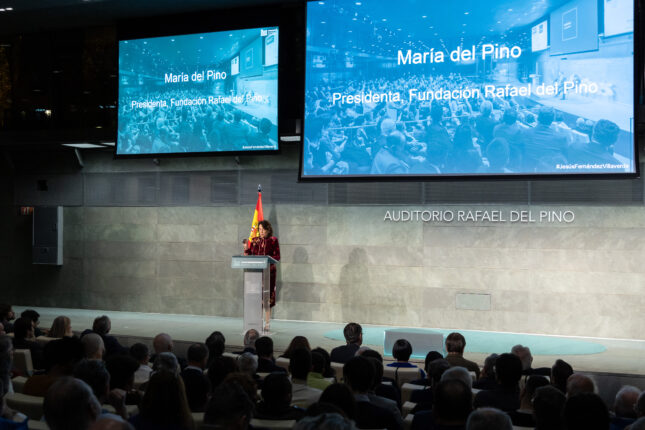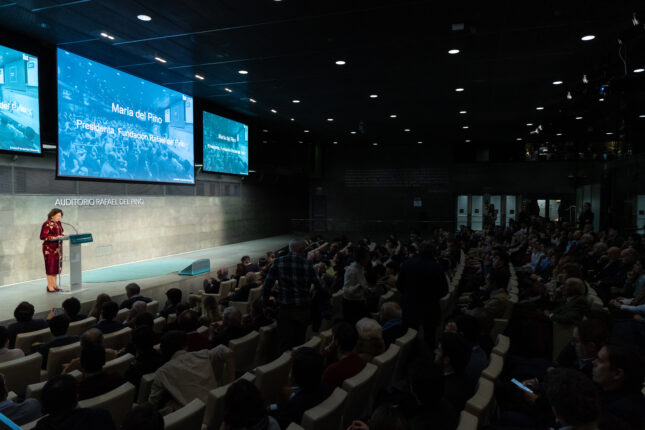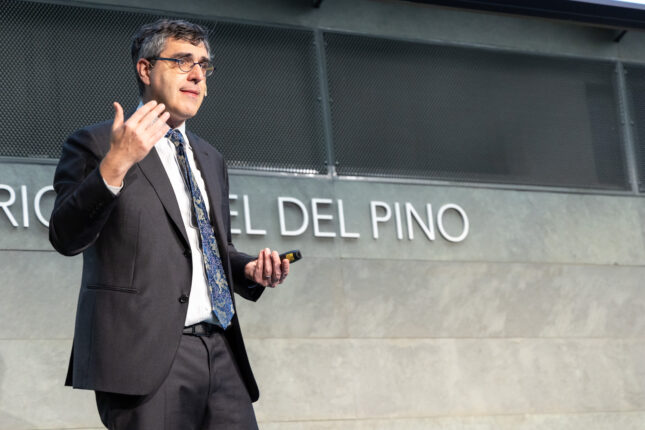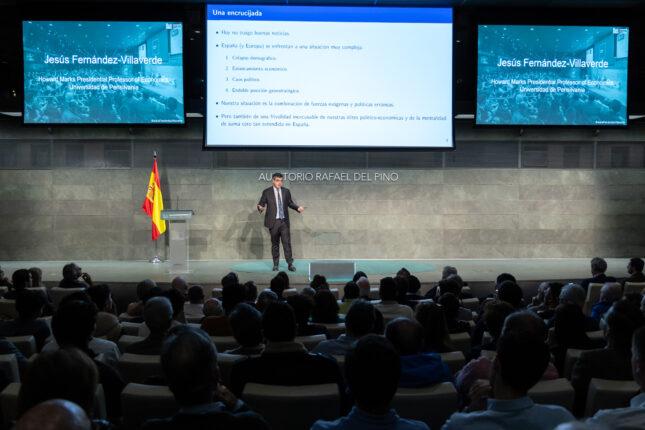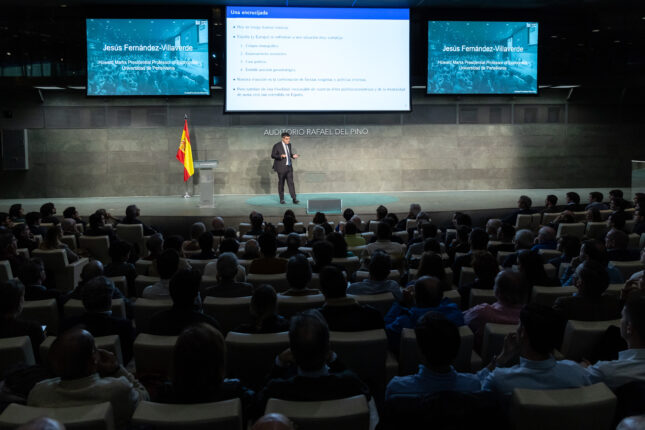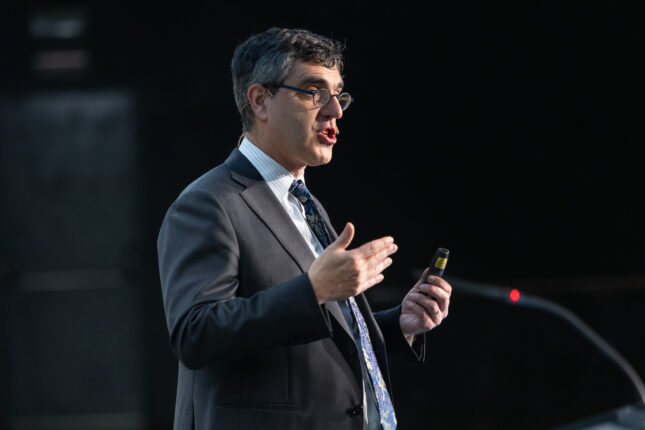Spain (and Europe) in trouble
Summary:
Spain and Europe in trouble: Reflections from Jesús Fernández-Villaverde's keynote lecture
On 12 December 2024, the Rafael del Pino Foundation was the venue for a master conference given by Jesús Fernández-Villaverde, an internationally renowned economist. Under the title "Spain (and Europe) in trouble", the speaker accurately dissected the great challenges facing Spain and the European continent at a historic moment characterised by demographic collapse, economic stagnation, geopolitical instability and the irruption of artificial intelligence (AI). This article gathers together the central ideas of a conference that left no one in attendance indifferent.
A worrying diagnosis
1. Demographic collapse
Spain, with a fertility rate of only 1.2 children per woman, faces a structural problem that threatens to reduce its population by 40% per generation. This phenomenon not only poses existential problems for the country, but also has a direct impact on public accounts: an ageing population increases spending on pensions and healthcare, reducing the resources available for other key areas.
2. Economic stagnation
In a comparative analysis, Fernández-Villaverde showed how Spain and Europe have been losing ground to the United States in terms of per capita income. While the US economy is growing at a dynamic pace, Europe, and Spain in particular, has failed to realise its potential for convergence.
Geopolitics and defence
The economist also highlighted Europe's weaknesses in defence. For decades, European countries have neglected to invest in security, confident that the international context would remain benign. However, the reorientation of US priorities and the rise of new powers such as China and Russia call for an urgent strategic rethink.
4. The artificial intelligence revolution
The emergence of AI represents the most significant technological change of our era. However, while the US and China are leading the field, Europe is lagging behind. Fernández-Villaverde pointed out that Spain lacks great AI models and faces a regulatory framework that discourages innovation. "Right now, the Taliban regime in Afghanistan has a more favourable environment for AI than Spain," he said.
Proposals to reverse the situation
Despite the bleak outlook, Fernández-Villaverde put forward five key strategies to put Spain's future on track:
1. Increase the birth rate
The economist described the demographic collapse as "Spain's existential problem" and proposed redirecting all economic policy towards increasing fertility. Although reaching the replacement rate (2.1) seems an ambitious goal, any improvement above 1.2 would have a positive impact.
2. Improving public administrations
Public sector inefficiency is a critical obstacle. From emergency response to technology implementation, administrations need to modernise and adapt to the demands of the 21st century.
3. Adapting to the new geopolitical scenario
Spain must increase its investment in defence and strengthen its international relations to guarantee its security and competitiveness in a more complex world.
4. Reforming the economy
Making the labour market more flexible, promoting efficient capital markets and reducing regulatory hurdles are essential steps to stimulate economic growth and attract foreign investment.
5. Going for cheap and stable energy
With the AI revolution, the availability of affordable electricity becomes a key competitive factor. Spain has the opportunity to lead in solar energy, taking advantage of its geography and climate.
Conclusion
Jesús Fernández-Villaverde closed his lecture with a strong message: although Spain and Europe face monumental challenges, they also have a window of opportunity. The technological revolution, led by artificial intelligence, could be the key to reversing the stagnation. However, this window is closing fast. Without bold and well-executed decisions, Spain risks becoming an irrelevant tourist destination on the global stage.
The question that remained in the air was whether we will have the political and social will to face these challenges or whether, as the economist warned, we will continue to waste time in sterile debates while opportunities slip away.
The Rafael del Pino Foundation is not responsible for the comments, opinions or statements made by the people who participate in its activities and which are expressed as a result of their inalienable right to freedom of expression and under their sole responsibility. The contents included in the summary of this conference are the result of the debates held at the meeting held for this purpose at the Foundation and are the responsibility of their authors.
The Rafael del Pino Foundation is not responsible for any comments, opinions or statements made by third parties. In this respect, the FRP is not obliged to monitor the views expressed by such third parties who participate in its activities and which are expressed as a result of their inalienable right to freedom of expression and under their own responsibility. The contents included in the summary of this conference are the result of the discussions that took place during the conference organised for this purpose at the Foundation and are the sole responsibility of its authors.
